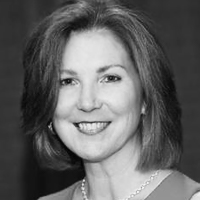Today, I would like to cover an introduction and overview of our major coding systems, the principles of using ICD, resources that can be used, and practical scenarios.
Learning Outcomes
The course learning objectives are to explain the purpose and function of the International Classification of Diseases (ICD) coding system, implement ICD-10 coding principles for efficient and accurate billing, and use the resources available to crosswalk ICD-9 codes to the new ICD-10 codes.
Health Care Coding Systems
Before discussing ICD codes, it is important to know what they are and how they are different from the other coding system. There are two major healthcare coding systems.
Health Care Common Procedures Coding System (HCPCS)
The first coding system is referred to as HCPCS. HCPCS stands for Healthcare Common Procedure Coding System and it is a completely separate and distinct coding system from the International Classification of Diseases (ICD). The HCPCS Level I, that I am sure you are all familiar with, is the section that contains current procedural terminology, otherwise known as CPT codes. CPT codes represent what we do with our client or patient and that particular level of the HCPCS is owned by the American Medical Association.
There is a HCPCS Level II, which you may also be familiar with. These are codes that are used to report supplies, equipment and devices.
International Classification of Diseases (ICD)
Today, we are only going to discuss the International Classification of Diseases coding system. Currently, we are using the ninth revision clinical modification, also known as ICD-9. Beginning October 1, we will use the new ICD-10. For those of you that are ready to go, please do not use ICD-10 until October 1, because they will not be taking it. You still need to use ICD-9 up until October 1.
International Classification of Diseases, Clinical Modification (ICD-CM)
ICD codes are diagnostic codes that describe the reason we are evaluating or treating the client or the patient. Nomenclature for speech language pathology and audiology services varied from facility to facility until the codes were unified and coding became universal in the United States when payers, especially Medicare, began requiring them. Today, we all use these systems and the main purpose of the coding system initially was to provide a common language among all the providers, the payers, and administrators. Today, it also provides a great deal of data for basic healthcare statistics.

